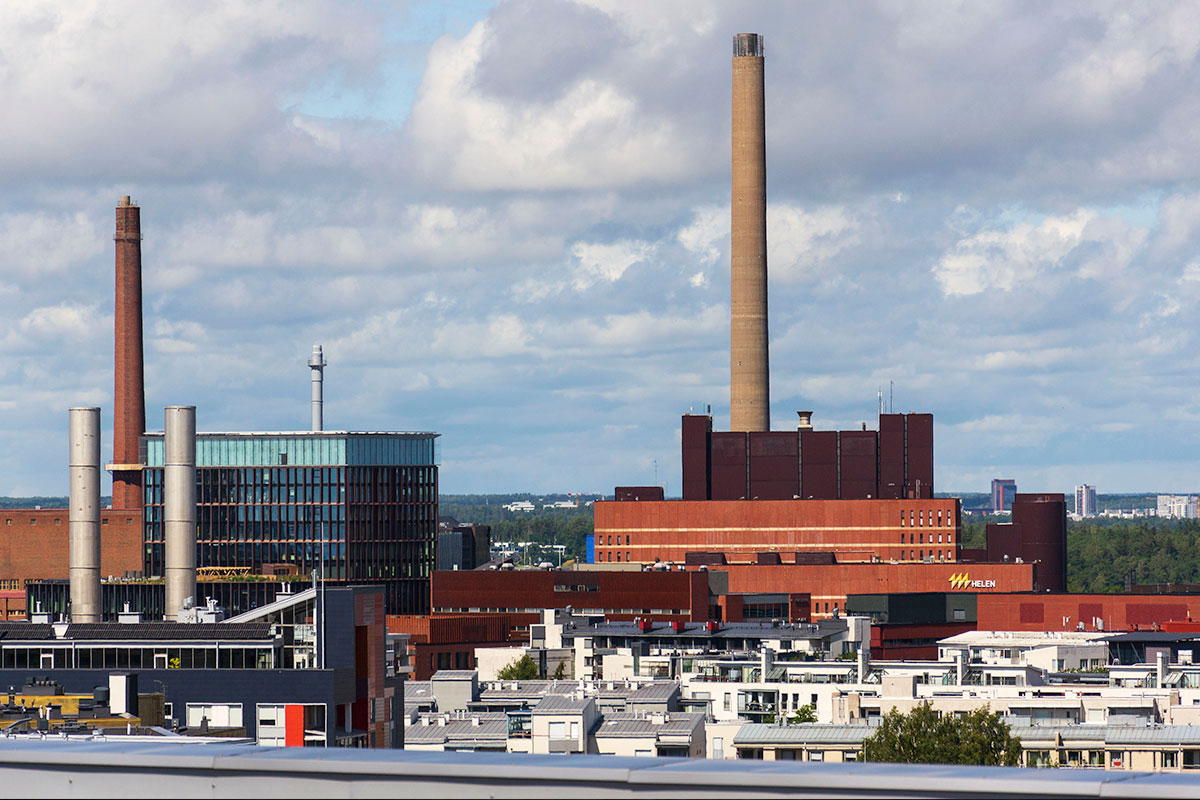Helsinki’s last coal power plant is officially set to close today (April 1), marking a significant milestone in the city’s journey towards carbon neutrality and bringing Finland’s era of coal-burning to an effective end.
After already shutting down the Hanasaari B power plant two years ago, Helsinki will now rely entirely on alternative energy sources to meet its ambitious climate goal of becoming carbon neutral by 2030 – two decades ahead of the EU’s own target.
By retiring the Salmisaari plant, Helsinki is hoping to slash its carbon dioxide emissions by 30% compared to the previous year. In 2022, coal still fuelled 64% of the municipal energy utility Helen Ltd’s district heat production. With both Hanasaari and Salmisaari closed in the space of just two years, the Finnish capital has already reduced its CO2 emissions by a total of 43%. Nationally, these closures will lower Finland’s overall emissions by around 5%.
Helen Ltd’s new approach to energy production in Helsinki will be electrified and carbon-neutral, relying on heat pumps, electric boilers, energy storage and sustainably sourced bioenergy for heat, while power will come primarily from wind, nuclear, hydro and solar. This transition is already under way, with projects like Europe’s largest electric boiler plant and one of the world’s largest heat pumps. Hydrogen is also a high priority, including Helen’s 3H2 – Helsinki Hydrogen Hub, scheduled to start production in 2026.
“The closing of the coal-fired energy plants is an important and historical change for Helsinki, Finland and, ultimately, the whole planet. Cities the world over have assumed a leading role in the fight against climate change. Helsinki wants to be a bold forerunner, on both a national and global level. The fact that we have been able to resolutely move forward with our plans to shut down coal-fired power plants in our city is a strong indicator of our determinedness in this area,” says Juhana Vartiainen, Mayor of Helsinki.
“With regard to Helsinki’s direct climate emissions, we have made particularly good progress towards our goal of achieving carbon neutrality by 2030 in terms of heating and electricity consumption. Shutting down the operations of the Salmisaari coal power plant is a really important step and a much-needed major deed. However, our determined work towards emissions reductions will not stop here, as our objective is to be net zero by 2040, and from there on we will strive towards carbon negativity,” points out Deputy Mayor Anni Sinnemäki.
UK is also coal-free as of September 2024
Helsinki now joins the UK in consigning coal to the history books, after Ratcliffe-on-Soar power station – the country’s last coal facility with a 2GW capacity – closed in September 2024. Having seen 25 of its coal plants either close or convert to alternative fuels since 2000, the UK became the first G7 nation to go fully coal-free, nearly a century and a half after opening the world’s first coal power plant in 1882. By agreeing to end reliance on coal power by 2035, the other G7 nations are also embracing the green transition.
Ratcliffe-on-Soar’s decommissioning – taking around two years to complete – mirrors the changes in Helsinki, with both cities focusing on cleaner energy sources and innovative technologies/

